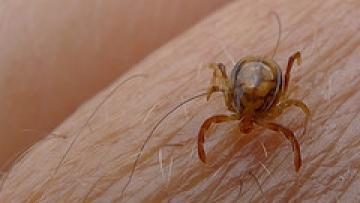
Section Branding
Header Content
More Ticks Spread Across The Southeast
Primary Content

May is “Lyme Disease Awareness” month and state health officials say there are not only more ticks to contend with—but new species of ticks have migrated to the Southeast.
It’s a reminder to be even more vigilant about checking your pets for ticks.
New to Georgia-- the Lone Star tick, common in the state of Texas which carries a flu-like infection -- and more sightings of The Gulf Coast tick which carries a disease similar to the bacteria that causes Rocky Mountain Fever.
Entomologists think ticks are spreading because of climate changes and an increase in the deer population.
Joe Piesman, Tick-Borne Disease Activity Chief for the CDC says:
“As the deer populations have increased, some of the ticks associated with deer have increased, like the Lone star tick and Ixodes Scapularis, also known as black legged ticks, also known as the deer tick. Habitat change, changes in hunting practices and perhaps climate changes have all played a role.”
Dr. Mel Cown, a vet with the Athens Animal Hospital says he’s seen a spike in ticks—so much so that tick products are on back-order. He gives advice about removing them from your pets:
“If you can use a Kleenex or something, something to put between you and the tick and then those engorged ticks that look like grapes, you have to be extremely careful, when removing those because if one were to rupture, you would possibly have some infectious material there.”
The CDC has not reported a spike in tick-borne diseases, like Lyme Disease.
Tags: CDC, ticks, parker wallace
